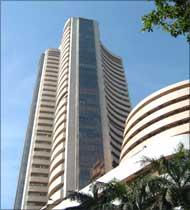It is said that to be really successful in life, you need to have your fundamentals strong. But how many of us actually sit down and try to find answers to basic questions related to whatever we are interested in?
 For example, how many investors who play the markets regularly actually know what a stock exchange is, how did it come into being and its importance?
For example, how many investors who play the markets regularly actually know what a stock exchange is, how did it come into being and its importance?
Everyday, stocks are exchanged and traded in numerous stock markets around the world. The liquidity they bring are a vital component of economic growth. However, we seldom stop and think about the vital role that a stock exchange plays.
This article will try to provide such basic information for your perusal.
What is a stock exchange?
A stock exchange is a corporation or mutual organisation which provides "trading" facilities for stock brokers to trade in stocks and other securities. The securities traded on a stock exchange include: shares issued by companies, unit trusts, derivatives, pooled investment products and bonds.
Simply put, stock exchanges are open markets that trade in financial assets. Whether associated with a company or acting as an individual, a stock exchange is the place where stocks are bought and sold. There are a number of major stock exchanges around the world and each of these plays a part in determining the overall economic condition.
Which was the first stock exchange?
The first stock exchange was in the Netherlands when the Dutch East India Company issued the first shares on the Amsterdam Stock Exchange. Slowly, stock exchanges opened in London and in New York.
What is the role of a stock exchange that makes it vital to an economy?
The main function of a stock exchange is to facilitate the transactions associated with both buying and selling of securities. Buyers and sellers of shares and stocks can track the price changes of securities from the stock markets (derivatives, equity etc.) in which they operate.
Also, stock exchanges have multiple roles in an economy which make it vital. These roles include:
- Raising capital for businesses
- Mobilising savings for investment
- Facilitating company growth
- Profit sharing
- Corporate governance
- Creating investment opportunities for small investors
- Government capital-raising for development projects
- Barometer of the economy
How does a stock exchange operate?
With the help of stockbrokers, the buyers and sellers participating in a stock market carry out their transactions. The brokers representing selling parties take their orders to the stock exchange floor and then find brokers representing parties willing to invest in similar stocks. If both parties agree to trade at the fixed price, the transaction takes place.
What are the requirements to trade in a stock exchange?
Companies have to meet the requirements of the exchange in order to have their stocks listed and traded, but requirements vary by stock exchange. However, the common requirements are that to be able to trade a security on a certain stock exchange, it has to be listed there and trading is done by members only.
In India, Bombay Stock Exchange, which is the oldest stock exchange in Asia located in Dalal Street, Mumbai, India has requirements for a minimum market capitalisation of Rs 25 crore (Rs 250 million) and minimum public float equivalent to Rs 10 crore (Rs 100 million).
What are the benefits and drawbacks of listing your company on a stock exchange?
Going public is not an easy task. In deciding whether to seek a listing, a company should consider the alternative financing needs available and the benefits versus the drawbacks of listings.
Benefits
- Creating a market for the company's shares
- Enhancing the status and financial standing of the company
- Increasing public awareness and public interest in the company and its products
- Providing the company with an opportunity to implement share option schemes for their employees
- Accessing to additional fund raising in the future by means of new issues of shares or other securities
- Facilitating acquisition opportunities by use of the company's shares
- Offering existing shareholders a ready means of realizing their investments
Drawbacks
While there are benefits to going public, it also means additional obligations and reporting requirements on the companies and its directors:
- Increasing accountability to public shareholders
- Need to maintain dividend and profit growth trends
- Becoming more vulnerable to an unwelcome takeover
- Need to observe and adhere strictly to the rules and regulations by governing bodies
- Increasing costs in complying with higher level of reporting requirements
- Relinquishing some control of the company following the public offering
- Suffering a loss of privacy as a result of media interest




